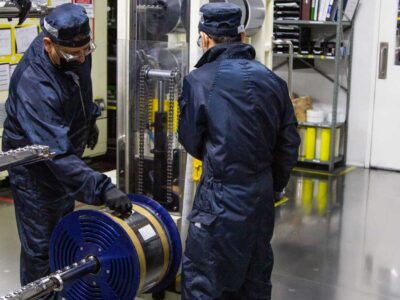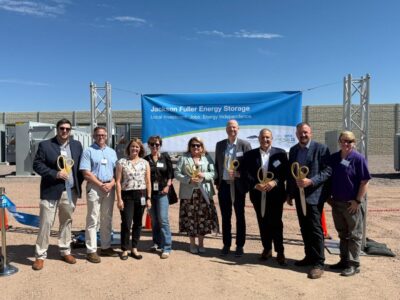In our previous piece, we covered comments from numerous legislators at last month’s National Clean Energy Week, highlighting the importance of an all-of-the-above strategy and bipartisan support for clean energy. In this piece, The Business Download delves deeper into the legislators’ explanations about why renewables are so crucial for America’s energy future.
Many of the legislators discussed the importance of an all-of-the-above energy approach for America’s national security. As a former helicopter pilot in the U.S. Navy and the wife of a retired F-18 pilot, U.S. Rep. Jen Kiggans (R-VA-02) understands the importance of security more than most. She pointed to the direct security benefits stemming from the Coastal Virginia Offshore Wind project, noting that project developer Dominion Energy is exploring a power grid upgrade for the Naval Weapons Station. “I want to find these greater relationships, these public-private partnerships” that can fund projects and upgrades “that I can’t do with my defense budget.” She summarized, “We know that energy security is national security,” and emphasized that this sentiment should be reflected in messaging.
Meanwhile, U.S. Rep. Susie Lee (D-NV-03), a member of the House Appropriations Subcommittee on Defense, emphasized the importance of federal funding, especially for critical minerals: “To boost the US supply chain, we must strengthen our ability to mine and process these critical minerals domestically, and this is going to require bold federal investments.” She highlighted the U.S. Department of Defense (DOD)’s announcement of a $2 billion public-private partnership with MP Materials, consisting of a 10-year commitment for the output from a domestic magnet manufacturing facility. Rep. Lee added that since 2020, the DOD has awarded over $439 million to build out domestic rare earth element supply chains. This is particularly relevant in light of China’s stronghold on rare earths used in defense and space applications. “By 2030, the United States is projected to hold less than 2% of global critical minerals, compared to China’s 31%. So it’s pretty clear we have a lot of work to do,” she noted.

Photo Courtesy National Clean Energy Week
Competition with China was a recurring trend in the week’s comments by legislators. Rep. Scott Peters (D-CA-50) pointed out that although 2024 was a record year for clean energy in the U.S., with 49 gigawatts of clean power connected to the grid, China built 79 gigawatts of wind and 277 gigawatts of solar during the same period. “Now, they’re not building wind and solar, because they’re some sort of climate warriors. They’re deploying those sources because they know that [they are] the fastest to market and cheapest power in the world, and if we want to beat China on AI and keep costs low, we need to do the same.” He remembered former Google CEO Eric Schmidt’s warning that if China comes “to super intelligence first, it changes the balance of power globally in ways that we have no way of understanding, predicting, or dealing with.”
U.S. Rep. Marc Veasey (D-TX-33) explained what China’s competition in clean energy means for the U.S.: “This is a very competitive field. The clean energy sector is a sector that they are going to try to beat us in, and they’re going to try to dominate in. And we need to take that very, very seriously. Now is not the time to retreat and play favorites. We really do have to have an all-of-the-above approach.” U.S. Rep. Juan Ciscomani (R-AZ-06) summarized for the audience, “The mission, obviously, is to advance clean energy production and critical minerals in America. That’s what you’re all here to do, and that’s what you want to support, especially with China and its rapidly advancing clean energy technologies. We have to act. We have to step up.”
In the words of U.S. Rep. Bob Latta (R-OH-05), “There’s one thing I always tell people: There is no second place in this race. You’re gonna win it or you’re going to lose it.”
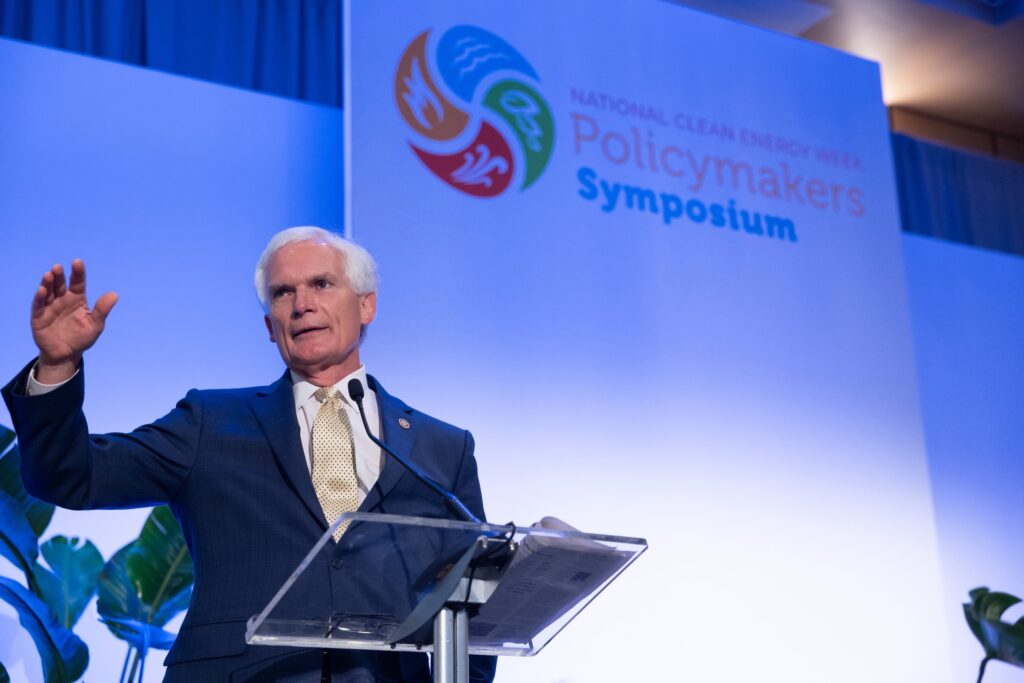
Photo Courtesy National Clean Energy Week
Another trending topic was the importance of energy security for the safety and livelihoods of Americans. Rep. Veasey (D-TX-33) reflected on 2021’s Winter Storm Uri, when “we got to see up close in front what it was like to almost be within literally a minute and like 30-plus seconds, from the entire grid, ERCOT, just shutting down, and it would have taken us years to recover from that, and it would have been an absolute calamity.” “What did Texas do in response, by the way?” Rep. Peters asked. “They reduced their future risk of blackouts from 10% to 1% by adding solar power and battery storage. Texas understands energy. They know the renewables are often the best solution.” Going forward, Rep. Veasey concurred that beyond making sure traditional energy systems like natural gas are secure, “we also have to do more to make sure that our wind and solar platforms are winterized and secured properly, and again, that that they’re going to be able to work and keep the Texas economy going and be strong for the future.” His list of solutions included more wind and solar paired with advanced storage capacity, as well as continued investment in the state’s nuclear fleet.
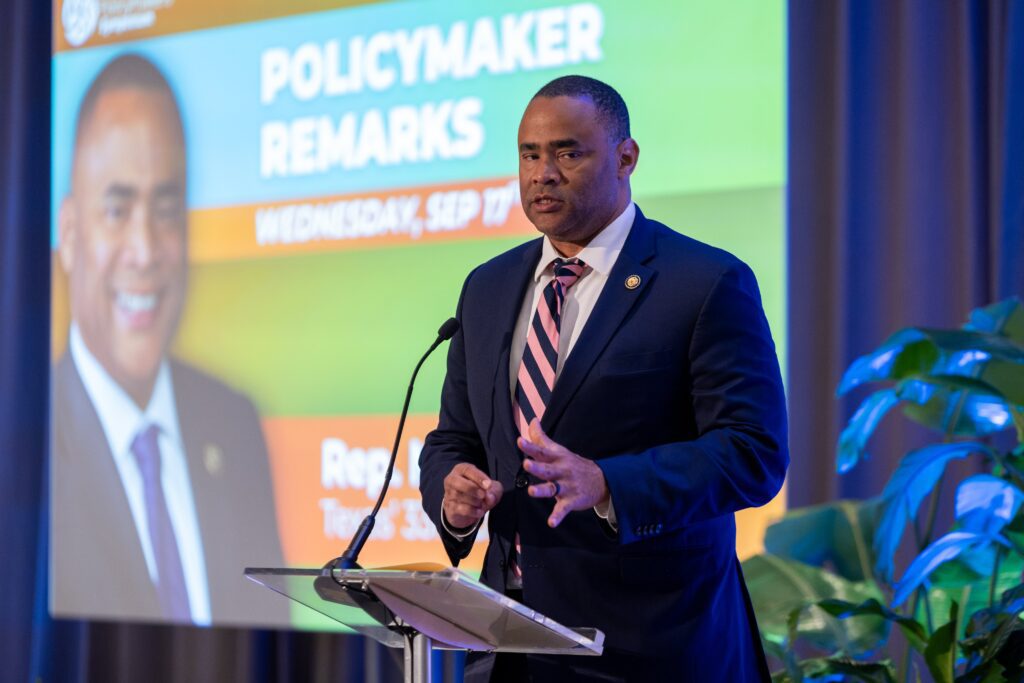
Photo Courtesy National Clean Energy Week
Many of the speakers also cited the importance of protecting the environment. U.S. Rep. Buddy Carter (R-GA-01) noted that although Republicans sometimes get labelled as not caring about the environment, “Some of my fondest memories growing up are going fishing with my dad… And I want my children to still have those experiences, and I want my grandchildren to have those experiences. So it is very important to me.” Rep. Veasey concurred that this is a bipartisan issue: “I wish that we could find more bipartisan moments to talk about this. As a Texan, I love the great outdoors. I love to go hunting, I love to go hiking, I love to do things like that. We want to make sure that we have clean air and clean water to do things like fish. Who wants to fish in some dirty water? Who wants to go hunting with dirty, smoggy air around them?”
Meanwhile, Rep. Ciscomani advocated for the beauty of Arizona: “Every state has beautiful landscapes, but I’ve got to tell you, Arizona has some of the best. We’re the Grand Canyon state. We have so much natural beauty that I want to make sure we protect it. I would be the first to stand up against something that would endanger that.” At the same time, he emphasized the environmental friendliness of Arizona’s critical minerals supply chain, pointing to initiatives such as water recycling efforts that exceed legal requirements. He summarized, “I’m a strong believer that you are able to promote economic development, give the mineral production that we need in this nation, while also protecting our environment.”
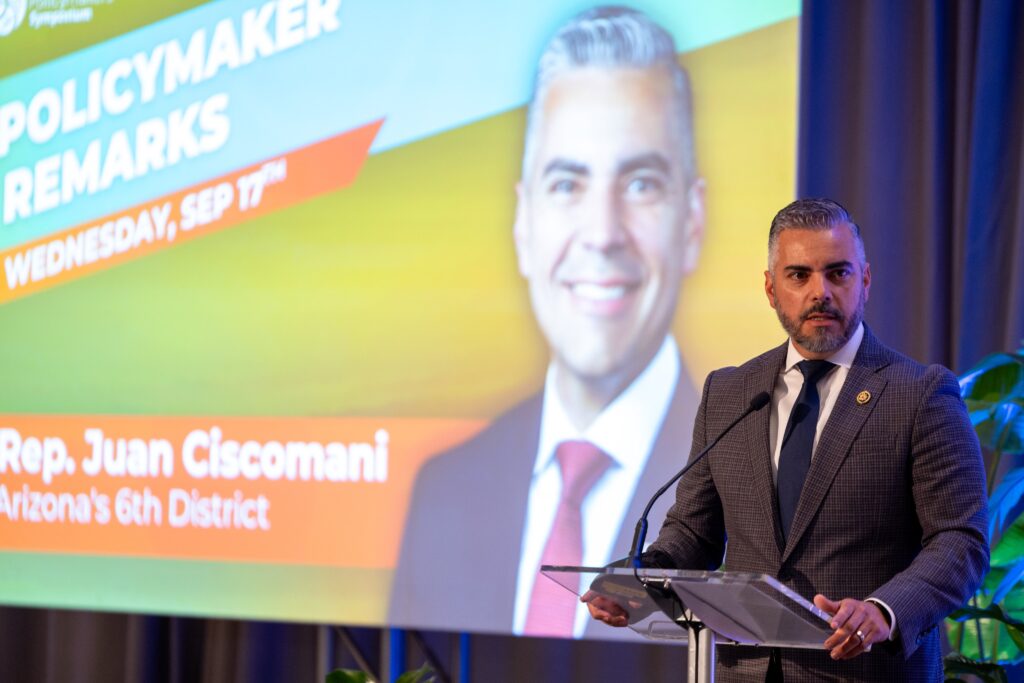
Photo Courtesy National Clean Energy Week
Finally, energy costs were a central topic of discussion. Rep. Carter emphasized that one of the reasons Georgia has been the number one state for business is because “we have had clean, and we’ve had reliable, and we’ve had affordable energy.” The affordability piece is key, according to Rep. Latta: “One thing I tell people is this: I just don’t need energy, I’ve got to have affordable energy. If you don’t have the word affordable in front of it, people aren’t working. We can’t compete.” An all-of-the-above strategy will be key to guaranteeing affordable prices for consumers, especially in the face of increasing demand for electricity for the first time in decades, Rep. Peters explained: “You don’t have to be an economist to know that if demand increases and supply doesn’t keep up, prices will climb, and that’s a problem for every American business and family.”



